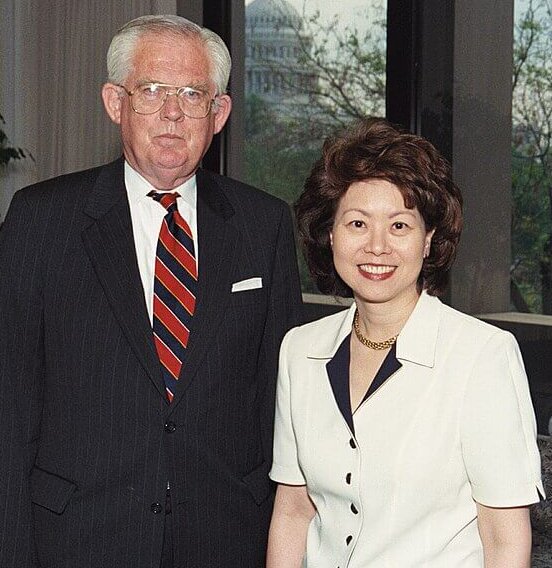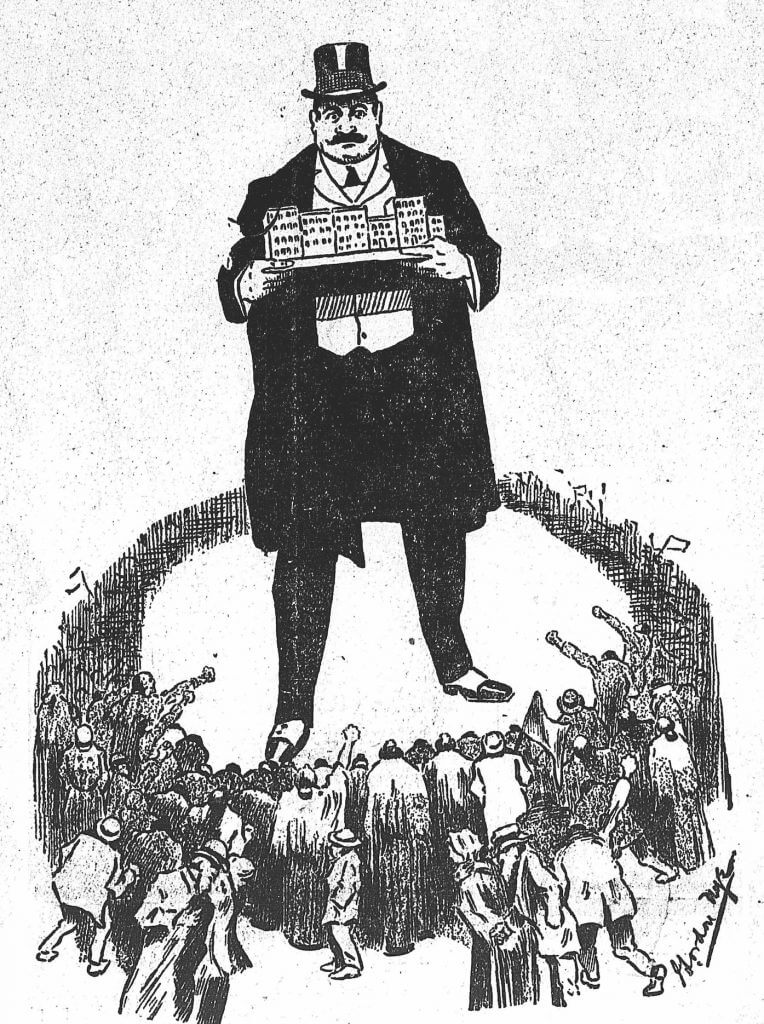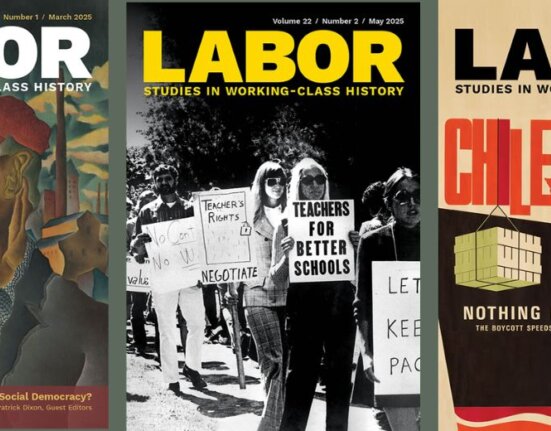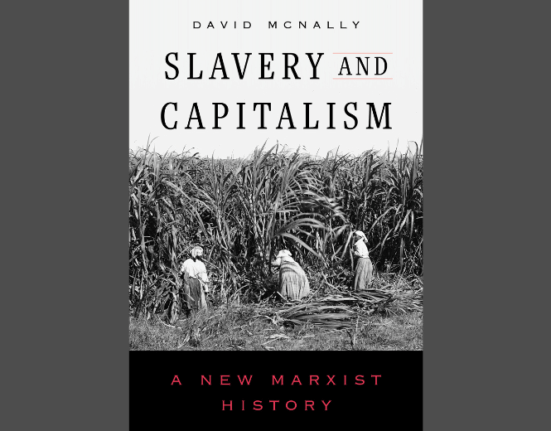
What remains to be said about Abundance, the book that’s launched a thousand takes? Authors Ezra Klein and Derek Thompson cast their book as a novel approach grounded in fresh progressive visions focused on eliminating administrative burdens. Labor lawyer and policy analyst Matt Bruenig’s review situates the work among competing master narratives about the late twentieth-century U.S., observing that Abundance’s advocates, such as Yale Law professor David Schleicher, want to change the focus away from neoliberal deregulation and union declension. Instead, Schleicher decries a constraining legal proceduralism that impedes growth.[1] In Current Affairs, editor-in-chief Nathan Robinson alerts readers to Josh Barro’s anti-union comments at the recent Abundance-adjacent “WelcomeFest” conference, where the book’s co-author Derek Thompson was a featured speaker. But independent scholar and author Malcolm Harris notes that the book praises a project, the quick repairing of a portion of Interstate 95 in Philadelphia, done with union labor.
While these authors (among others) at least touch upon the labor question in their respective reviews, labor historians should weigh in. I offer a labor history perspective to interrogate what the authors mean when they write “…to have the future we want, we need to build and invent more of what we need.”[2] My own take on this book, as I will elaborate here, is that no matter what previous public reassurances the authors, or at least Klein, have given regarding their stances on the labor movement, the solutions Abundance promotes are joined to assumptions that have eroded workers standing since the 1970s in the U.S.[3]

Abundance opens with a utopian vision that would make Edward Bellamy, the nineteenth century author of the best-selling Looking Backward, blush. Bellamy offered stunning futuristic visions of the future, where government-led efficient systems provided a world of abundance and the elimination of poverty. Abundance borrows only the technocratic sci-fi wishlist but is sure to tickle the fancy of centrist policy wonks and think tank fellows: automated drones deliver weight-loss drugs made in space only 25 years from now.[4] Perhaps it should not come as too much of a shock when the book’s authors, in decrying a relative lack of utopian thinking in the present, point to Aaron Bastani’s Fully Automated Luxury Communism as an exception to this tendency.[5] But where Bastani for instance rails against London’s tragic Grenfell Fire and the market-friendly deregulatory regime that he blames for it, Klein and Thompson use their platform to call for less regulation in housing, not more. Nor does Bastani, unlike Klein and Thompson, imagine an alleged utopia where one is still forced to purchase electricity, albeit cheaply enough to “scarcely find [the charge] on your monthly bill.”[6]
Klein and Thompson follow their flash forward to 2050 with advocacy for supply-side liberalism, which also happens to be the subject of Brent Cebul’s 2023 Illusions of Progress. Cebul defines supply-side liberalism as a combination of “localism, market creation, public-private partnerships, and publicly secured financing…” that would, in its proponents’ estimation, “…deliver…economic and social goods…without creating overly centralized state authority or durable direct expenditures.”[7]
The Abundance authors, however, regret that “supply-side” gets unfairly associated with trickle-down economics and right-wing governance. Under a sub-heading titled “The Supply-Side Mistake,” the authors explain their belief that Democrats share the blame with Republicans for promoting the false view that the government is often incapable of solving people’s problems.[8] In Klein and Thompson’s telling, Democrats have wrongly skewed towards subsidizing demand without considering supply. They then advocate for a turn towards the supply-side that they believe has largely been ignored up until now.[9] But Cebul understands something that Klein and Thompson either miss or ignore: American liberals have been market-oriented supply-siders since at least the New Deal.[10] Under this framing what Thompson and Klein urge often amounts to little more than more of the same, merely swapping out rhetoric one might have once heard in a manufacturing firm’s boardroom for phrasing more compatible with a modern startup incubator.
Perhaps it is unfair to expect too much from non-historians vis-a-vis their grasp of the academic literature on these subjects. Klein and Thompson defenders will retreat to a position of “it’s just an airport book” whenever Abundance receives pushback from anyone whose scholarly credentials or expertise rise above the level of social media influencer or cable news talking head. But when the copy on the inside flap of the book’s dust jacket calls it, as Robinson points out, “…a once-in-a-generation, paradigm-shifting call to renew a politics of plenty…” I think it sets Abundance and its authors up for some harder hitting critiques than it would normally receive from pundits. Furthermore, Klein and Thompson do provide citations and end notes, not only referencing historians like Lizabeth Cohen and her Consumer’s Republic (albeit more so because they like the title rather than Cohen’s argument – Making a New Deal is nowhere to be found) but even interviewing Gary Gerstle about his Rise and Fall of the Neoliberal Order for their Conclusion.[11]
The Abundance authors’ optimism in some areas could be tempered by a bit more historical thinking. Their presumption that there will be future socialization of gains from AI is particularly egregious for its lack of elaboration and outright lack of historical context.
The Abundance authors’ optimism in some areas could be tempered by a bit more historical thinking. Their presumption that there will be future socialization of gains from AI is particularly egregious for its lack of elaboration and outright lack of historical context.[12] Even assuming, as they do, that the ongoing so-called “artificial intelligence” boom is more than just the next dotcom bubble, productivity gains over the last several decades have not led to a proportionate increase in real wages and there is nothing in what Klein and Thompson propose or suggest in Abundance that would indicate a bucking of this trend.
Klein and Thompson therefore embody what Elizabeth Popp Berman calls “the economic style” of thinking, a standpoint valorizing efficiency and making the government work more like the market above other concerns.[13] She writes that this internalized tendency causes liberals to “…begin [emphasis mine] their [policy] negotiations with a stance of ‘as much as is cost-effective’,” in contrast to conservatives who “begin with an absolute claim…” which “…puts the former group in a weaker position right out of the gate.[14]

Worse still, Klein and Thompson imply throughout the book that demands from the labor movement, e.g., one of the factors that “made” the New Deal and hence the state capacity the authors are ostensibly interested in reviving, are part of the purported interest-group driven “everything-bagel” liberalism Klein has critiqued previously.[15] This is despite the midcentury era for which they wax semi-nostalgically coinciding with the height of private sector union membership.
Meanwhile, others who broadly identify with pro-Abundance views, and who are cited throughout Abundance, such as Matt Yglesias, consistently promote anti-union views. Papers from the libertarian Niskanen Center, which the authors openly admit appeals to conservatives – so named for Reagan economic advisor, Cato Institute co-founder, and literal author of the book Reaganomics William Niskanen – are perhaps the most cited works in the book following the authors’ own prior pieces in the New York Times and Atlantic.[16]
The authors seem unconcerned about the fight for who gets to share in the presumed abundance that something like, say, zoning reform might bring.
Indeed, the crux of Klein and Thompson’s argument is that, besides certain consumer goods, there is not today, in the richest society on earth, enough to adequately redistribute, thanks in part to regulations unions still advocate for – hence the need for a “liberalism that builds.”[17] The authors seem unconcerned about the fight for who gets to share in the presumed abundance that something like, say, zoning reform might bring. Funny too that despite their disdain for modern zoning laws, insofar as zoning prevents market-rate housing from being built in places like the Bay Area, the authors do not adequately reckon with said laws’ racist history. They pay lip service to the fact that housing shortages disproportionately affect people of color, but never discuss why largely lily-white communities tended to want high levels of control over what was being built in them. Neither is redlining mentioned in their brief discursion on FHA loans and homeownership as a store of value.[18]
It is because of racially-segregated housing that the same halcyon days of the post-WWII economic boom, which to reiterate Klein and Thompson see as a period of abundance, were neither as abundant nor evenly distributed as is commonly assumed, even though higher marginal tax rates and strong private-sector unionization rates kept inequality much lower than it is today.[19] Klein and Thompson claim to support social welfare interventions at least in the way of “giving people vouchers…”[20] yet fail to appreciate the degree to which supply-side “solutions” are preferable to their billionaire supporters precisely because such interventions come part-and-parcel with an affordability crisis that always means austerity measures. Again, instead of pushing for more redistribution of already existing infrastructure as a solution, Klein and Thompson believe that if there is more stuff to redistribute, they can sidestep the issue of equity – “a rising tide will lift all boats”[21] so why worry about who has a yacht versus a dinghy?
Europe’s social democratic and labor parties did not get there by ceding as much ground to real estate developers or other capitalists as Klein and Thompson might recommend.
But why then is it that somewhere like France can apparently have the kind of “abundance” Klein and Thompson praise while having an even stronger labor movement than the U.S.? This is a question Abundance Agenda advocates proffer against accusations that their movement is anti-labor. But Europe’s social democratic and labor parties did not get there by ceding as much ground to real estate developers or other capitalists as Klein and Thompson might recommend. In fact, Austria’s abundant social housing program in Vienna challenges, in its mere existence, much of the market-fetishization abundant within the Abundance movement .
Building more housing is a laudable goal, something that I have seen no reviewer deny. And working-class people would certainly be beneficiaries of lower rents, assuming that the filtering effect YIMBYs insist upon proves correct.[22] Speaking of filtration, Klein and Thompson go out of their way to bash air-ventilation system standards for housing near highways since they take it as a given that such standards prevent new housing from being built. They actually go so far as to speculate that the hypothetical beneficiaries of housing without said standards would end up living in tents on the freeway should those standards continue to be enforced.[23] Conceding the point that subpar housing is better than no housing at all, why, in a book titled Abundance, whose authors envision a post- or at least minimal-scarcity future just a quarter century away, would they not demand high-quality housing for all right now?
Whether public or private, how housing gets built and what kinds get built matter. For instance, foregoing environmental protections so as to ‘create jobs’ is a tension unfortunately all-too familiar to historians of the labor movement, and one that Klein and Thompson endorse, albeit not full-throatedly. They seem cautious at points to not totally alienate all of the interest groups they vilify elsewhere. Their book is addressed to what passes for the left in the U.S., namely liberals and “progressives” but their approach is belied by the fact that the most effusive praise and support for them and their book have come from Silicon Valley-types and wealthy Democratic donors.
At its heart, Abundance combines nostalgia for an imaginary postwar golden age tarnished by do-gooder overregulation with warmed-over neoliberal policy prescriptions, all disguised as a clean break from the past. Klein and Thompson naturalize capital’s supremacy, using a quotation from no less than Marx and Engels (while reassuring readers that “…there is much [they] got wrong”) in an attempt to demonstrate that unfettered production is the answer to a post-scarcity way of life – failing to consider that the point of the Manifesto and, indeed, the Marxist political program writ large is that the fruits of said production are unjustly concentrated amongst the ruling class but that collective action, not tweaking the law to be even more favorable to capital, can change this state of affairs.[24]

The prescriptions Abundance puts forward (“A Lens, Not a List” in the authors’ parlance) all revolve around policy makers doing their best to not so much wrangle concessions out of developers or other powerbrokers but incentivize their cooperation in a way that won’t actually threaten the status quo.[25] , Tenants’ unions–to say nothing of decommodifying housing altogether-would not just be steps too far for them; such proposals are simply inconceivable to supply-side liberals. But it is workers who typically get the short end of the stick when it comes to the kinds of trade-offs supply-side liberals will countenance. Consequently, working people would do well to approach Abundance and its broader Agenda with an abundance of caution.
[1] Bruenig cites an essay by Schleicher titled “What left-wing critics don’t get about abundance”
[2] Ezra Klein and Derek Thompson, Abundance (Avid Reader Press, 2025) 4.
[3] Klein wrote in a recent piece “I support making it radically easier to form unions.” But in the very next sentence he accuses some (?) unions of using environmental regulations for their own benefit, “…making it harder to build.” See Ezra Klein, “The Problems Democrats Don’t Like to See,” The New York Times June 8, 2025.
[4] Klein and Thompson, Abundance, 2.
[5] Aaron Bastani, Fully Automated Luxury Communism: A Manifesto (Verso, 2019) 13-14.
[6] Bastani, Fully Automated Luxury Communism, 206-208; Klein and Thompson, 1.
[7] Brent Cebul, Illusions of Progress: Business, Poverty, and Liberalism in the American Century (University of Pennsylvania Press, 2023) 3.
[8] Klein and Thompson, Abundance, 6-7.
[9] Klein and Thompson, Abundance, 8.
[10] Cebul, Illusions, 7.
[11] Klein and Thompson, Abundance, 231 n31, 269 n7. The supposed break between the New Deal and neoliberal era is something Cebul complicates in Illusions.
[12] Klein and Thompson, Abundance, 3.
[13] Elizabeth Popp Berman, Thinking Like an Economist: How Efficiency Replaced Equality in U.S. Public Policy (Princeton University Press, 2022) 6-7.
[14] Popp Berman, Thinking Like an Economist, 225.
[15] Klein and Thompson, Abundance, 113-117. If modern-day liberals and progressives think too much about procedure as an end in itself, as Thompson & Klein surmise, then the authors themselves are just as guilty in their emphasis on trade-offs.
[16] Klein and Thompson, Abundance, 16, 224; 244 n81-83, 88-89; 267 n68-69.
[17] Klein and Thompson, Abundance, 222.
[18] Klein and Thompson, Abundance, 44-47; Cebul, however, covers these matters extensively. See Illusions pp. 1, 15, 18, 193, 315 and Chapter 4 passim.
[19] Frank Levy and Peter Temin, “Inequality and Institutions in 20th Century America,” NBER Working Paper Series 13106 (May 2007): 1–53. https://doi.org/10.3386/w13106
[20] Klein and Thompson, Abundance, 7.
[21] Cebul notes how JFK “…borrowed his phrase from a New England business and civic association,” Illusions, 8.
[22] Under this view, as newer housing, even expensive housing, gets built, wealthier individuals “filter” out of older housing stock, opening it up for lower-income individuals to move into. See Andreas Mense, “The Impact of New Housing Supply on the Distribution of Rents,” Journal of Political Economy Macroeconomics Vol 3 no. 1 (2025) https://doi.org/10.1086/733977; & Karen Chapple and Taesoo Song, “Can New Housing Supply Mitigate Displacement and Exclusion? Evidence from Los Angeles and San Francisco,” Journal of the American Planning Association Vol 91 no. 1 (2024): 1–15.
[23] Klein and Thompson, Abundance, 109-110.
[24] Klein and Thompson, Abundance, 214-215, 271 n23. Tellingly, Klein and Thompson cite the version of the Communist Manifesto available from the libertarian Liberty Foundation’s “Online Library of Liberty,” and not a modern print edition or one from marxists.org.
[25] Klein and Thompson, Abundance, 215.
Author
-
Luke Masa is a PhD candidate in History at West Virginia University. His dissertation, tentatively titled 'What Are You Going to Eat, the Books?', examines the origins and outcomes of job training programs for dislocated workers in the Greater Pittsburgh area during the high tide of deindustrialization in the late twentieth-century.






